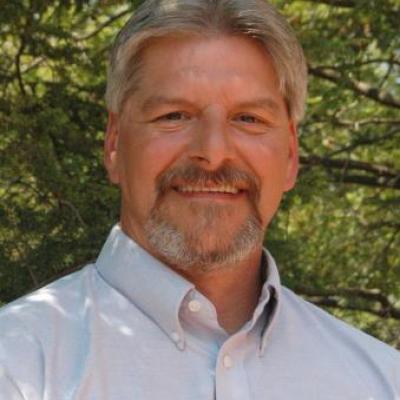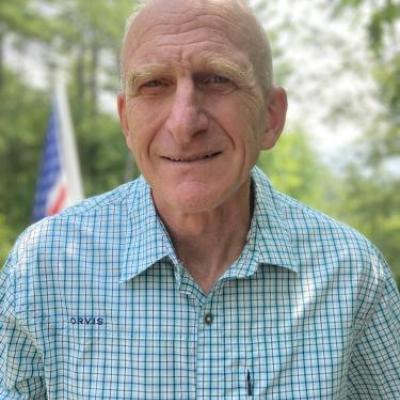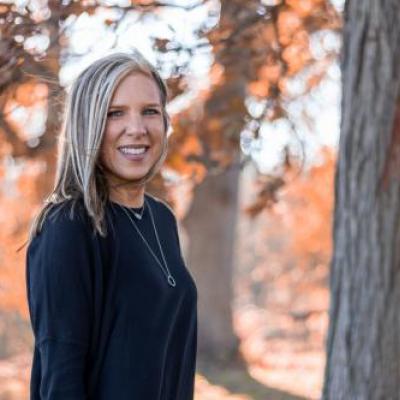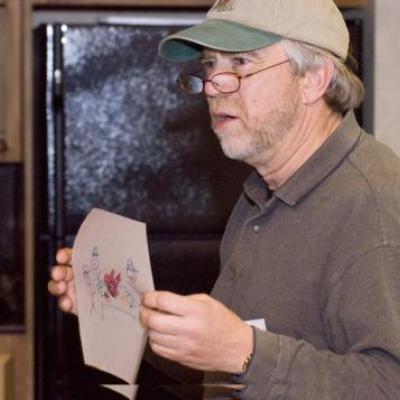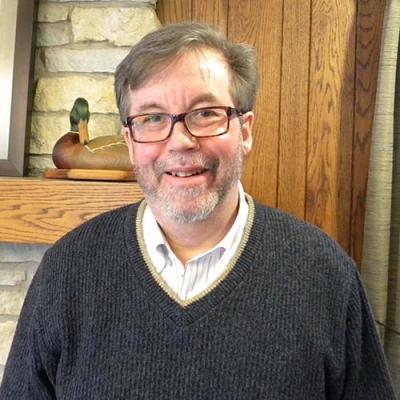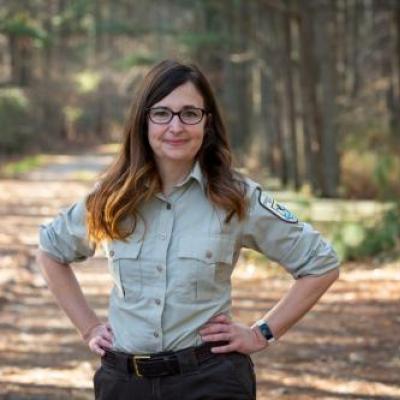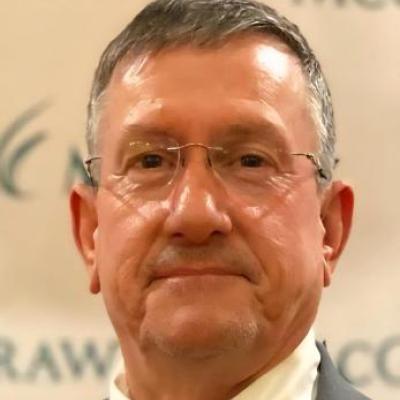National Conservation Training Center (NCTC)
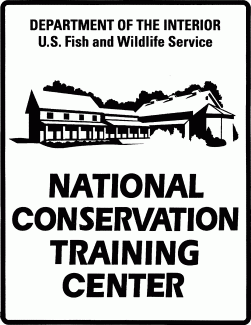
The National Conservation Training Center supports the mission of the U.S Fish and Wildlife Service in five critical ways:
- Home and Heritage: NCTC serves as the physical and virtual “home” of the U.S. Fish and Wildlife Service, where the history and heritage of the Service are preserved and shared;
- Training for the Mission: NCTC provides exemplary training and professional development tailored to support Service employees and conservation partners in accomplishing the agency’s mission;
- Partnerships: NCTC helps solve the urgent conservation challenges facing our natural resources by bringing together diverse partners to increase our relevance to the American people.
- Sustainability: NCTC is a national leader in the conservation community for its state-of-the art facility and green practices.
Campus Setting
NCTC is a walking campus on a 533 acre property. The instructional classrooms, commons, and housing are situated within the rural setting of both forest and grasslands. The architectural design demonstrates the buildings and walkways are blended with the landscape to entice guests to shed their metropolis pressures. Outdoor patios, walkways, and break areas are situated to easily view the Mid-Atlantic area wildlife throughout the four seasons. Birds, white-tailed deer, fox, and other critters are frequently seen skittering up nearby trees or moving along a grassland culvert.
Travel instructions
The National Conservation Training Center, or frequently referred to as NCTC, is located just 60 miles or just over 1 hour outside the Washington DC metropolitan beltway. We are part of the Shepherdstown, West Virginia community also known for the nearby state university just down the road from us. Our location is closest to the Washington Dulles International Airport, but many customers also use Baltimore/Washington International and Reagan National (DC) Airport.
Audience
natural resource professionals
Executive Secretary
Northeast Association of Fish & Wildlife Agencies
Gordon retired as Chief Wildlife Biologist for the State of New York in 2015 following a 35 year career as a wildlife biologist with New York, and now serves with the Northeast Association of Fish & Wildlife Agencies as Executive Secretary. Gordon is also very active on various committees of the Association of Fish and Wildlife Agencies. An enthusiastic deer and turkey hunter, Gordon especially enjoys taking novice hunters afield, and teaching about our trapping and hunting heritage during the CLfT workshops.
Bill has an M.S. in Wildlife Science from Utah State University. He worked for the Utah Division of Wildlife Resources for 36 years as a biologist, wildlife manager, coordinator, wildlife section chief and assistant director. He now enjoys the wonders of the world on a daily basis with his family while on the road and from the porch.
Aquatic Invasive Species Program Coordinator
Iowa Department of Natural Resources
Kim Bogenschutz is the Aquatic Invasive Species (AIS) Program Coordinator for the Iowa Department of Natural Resources (IDNR). She has developed and directed the IDNR AIS Program since its inception in 2000. Prior to her current position, she worked for the Minnesota DNR, US Fish and Wildlife Service, Iowa Department of Transportation, and IDNR in a variety of capacities including fisheries management, private lands restoration, environmental review and permitting, and nongame wildlife. Kim is vice-chair of the Association of Fish and Wildlife Agencies Invasive Species Committee, past chair of the Mississippi River Basin Panel on Aquatic Nuisance Species, and is on the Board of Directors for the Midwest Invasive Plant Network. A native of Minnesota, Kim earned a BA in Biology from Gustavus Adolphus College and an MS in Fisheries Science from South Dakota State University. In addition to CLfT, she shares her love of the outdoors as an instructor for Outdoor Journey for Girls and Becoming an Iowa Outdoors Woman. Kim, her husband, Todd, and their daughter, Veronica Brooke, reside on 50 acres along the bluffs of the Des Moines River in Madrid, Iowa, with their two bird dogs and cat. In addition to fishing, hunting, and boating, she enjoys attending her daughter’s dance events, spending time at the family cabin in Minnesota, and coaching cheer and dance teams.
Past Chairman, Vermont Fish and Wildlife Board
Rob has been involved with CLfT since 2008 and continues to find it motivating, challenging and extremely satisfying. He has served on both the Vermont Fish and Wildlife Board (Chairman) and the F&W Advisory Committee. A "student" of public regulation, he believes in the regulatory process works when all of the "players" understand and fulfill their obligations. Also, a current Trustee and President of the Barre Fish and Game Club, the largest private shooting and hunting club in Vermont. Other relevant credentials include Hunter Education Instructor (30 years), Range Safety Officer, NRA certified Shotgun Instructor and have conducted many education shooting programs for kids and women. Rob grew up in a hunting and fishing culture in Minnesota.
After graduating from college in Biology, he took a position as the Minnesota "Research Co-coordinator for Scientific and Natural Areas" . After 3 years, he when back to school and became a Chiropractic Physician, moved to Vermont and has been in private practice since 1983. He owns and manages a 50 acre wood lot and spends as much time as possible outdoors.
After graduating from college in Biology, he took a position as the Minnesota "Research Co-coordinator for Scientific and Natural Areas" . After 3 years, he when back to school and became a Chiropractic Physician, moved to Vermont and has been in private practice since 1983. He owns and manages a 50 acre wood lot and spends as much time as possible outdoors.
President
Bob Byrne Consulting
Currently, Bob is owner of Bob Byrne Consulting, a conservation consulting firm specializing in finding innovative solutions to conservation issues through strategic planning, programmatic reviews, evaluations, group facilitation and literature reviews.
Prior to forming his own company, Bob spent 30+ years in conservation where he worked for three state wildlife agencies, two conservation NGOs and a conservation-communications consulting firm.
Being an avid hunter and angler, Bob has a deep concern about passing on our hunting and fishing heritage on to future generations, and has focused much of his recent efforts on this task.
Some of his most recent projects include:
➢ Assisted The Council to Advance Hunting and the Shooting Sports (CHASS) and the Wildlife Management Institute (WMI) develop the National Hunting and Shooting Sports Action Plan that is being used as the framework to improve recruitment, retention and re-activation (R3) programs for hunting and the shooting sports.
➢ Assisted the Recreational Boating and Fishing Foundation (RBFF) and the Aquatic resources Education Association (AREA) develop a strategic plan for angler recruitment, retention and re-activation programs.
➢ Developed Environmental Stewardship Plans for 17 outdoor shooting ranges operated by the Wildlife Resources Division of the Georgia Department of Natural Resources.
Bob can be reached at bobbyrne2018@gmail.com or 540-937-2139.
Prior to forming his own company, Bob spent 30+ years in conservation where he worked for three state wildlife agencies, two conservation NGOs and a conservation-communications consulting firm.
Being an avid hunter and angler, Bob has a deep concern about passing on our hunting and fishing heritage on to future generations, and has focused much of his recent efforts on this task.
Some of his most recent projects include:
➢ Assisted The Council to Advance Hunting and the Shooting Sports (CHASS) and the Wildlife Management Institute (WMI) develop the National Hunting and Shooting Sports Action Plan that is being used as the framework to improve recruitment, retention and re-activation (R3) programs for hunting and the shooting sports.
➢ Assisted the Recreational Boating and Fishing Foundation (RBFF) and the Aquatic resources Education Association (AREA) develop a strategic plan for angler recruitment, retention and re-activation programs.
➢ Developed Environmental Stewardship Plans for 17 outdoor shooting ranges operated by the Wildlife Resources Division of the Georgia Department of Natural Resources.
Bob can be reached at bobbyrne2018@gmail.com or 540-937-2139.
Director of Outdoor Recreation & Habitat/ CLfT's Chief Firearms Instructor
Max McGraw Wildlife Foundation
Philip H Dietrich II, consultant and shooting instructor known for entertaining anyway legally and safely with a shotgun. Currently Director of Outdoor Recreation and Habitat at McGraw and CLfT's Chief Firearms Instructor. He has managed Wing & Barrel Ranch located in Sonoma, Ca. catering to the heart of wine country. Prior at Five Star Plantation, the South’s Premier quail facility. And Before that he was the GM of Prospect Hall Shooting Club, a private hunting and shooting facility serving world class wing shooters of the Washington D.C. area. He is NSCA level II certified shooting instructor. Between coaching shooting and Dog handling, he loves being a slave to an age-old trade. He has a diversified professional background in land management, habitat & herd management along with shooting sports course layout and design. In addition, he was the Area Chairman of Eastern Panhandle of Ducks Unlimited when hosting the 2012 Federal Duck Stamp Vote. A graduate of Liberty University in Lynchburg, Virginia with a BS in Sports Management and a Business Minor. He was born and raised in Ohio where he was mentored by family and friends at an early age in the world of conservation through hunting and shooting sports. Phil enjoys hunting waterfowl, upland birds and anything with feathers using great dogs, the best shotguns with the finest of companions. He is committed to introducing educating and passing along the heritage and importance of hunting and shooting sports to the world of conservation.
Deputy Refuge Manager
U.S. Fish and Wildlife Service
Anna has worked for the U.S. Fish and Wildlife Service since 2009, and her journey has brought her from D.C., to the Pacific Northwest, to the rocky coast of Maine and now to an ecologically diverse wildlife refuge complex in the tri-state area of northern NJ, southeast PA, and southeast NY known as the Lenape National Wildlife Refuge Complex. Anna lives with her husband Kyle, their two young sons and bird dog Burly on a blueberry farm in Sussex, NJ.
Executive Vice President
Max McGraw Wildlife Foundation
Kerry is executive vice president of the Max McGraw Wildlife Foundation. He previously spent nearly three decades in journalism, mostly at the Chicago Tribune, where he specialized in national and foreign news. He has a bachelor’s degree from Northwestern University and is an avid bird hunter and clay target shooter.
Project Leader
Chesapeake Marshlands National Wildlife Refuge Complex
Marcia Pradines Long is the Chesapeake Marshlands National Wildlife Refuge Complex Project Leader with the U.S. Fish and Wildlife Service. In this position, she has focused on strengthening relationships with the community, helping new audiences get engaged with the outdoors through programs like mentored hunts and partnerships, and finding the connections between people and wildlife that make conservation successful. She co-founded the First Shot mentored hunt program in 2018 with NWTF and MD DNR to help fill the gap she had personally experienced as an adult onset hunter who also needed help to get back out. She previously led the Division of Communications and Visitor Services for the National Wildlife Refuge System in the USFWS headquarters where she spearheaded the national Urban Wildlife Refuge Program.
She has a Masters degree in Wildlife Management from West Virginia University, and a BS in Biology from University of Pittsburgh. In her spare time she is an avid hunter, angler, and loves training her rescue dog Elsie. She also serves as a mentor for other women learning to hunt; Marcia has a strong desire to break down both the stereotypes and barriers for women and other minorities to get involved in the liberating and diverse world of outdoor sports.
She has a Masters degree in Wildlife Management from West Virginia University, and a BS in Biology from University of Pittsburgh. In her spare time she is an avid hunter, angler, and loves training her rescue dog Elsie. She also serves as a mentor for other women learning to hunt; Marcia has a strong desire to break down both the stereotypes and barriers for women and other minorities to get involved in the liberating and diverse world of outdoor sports.
Director
CLfT
Prior to coming to CLfT, David was a Captain with the Indiana Department of Natural Resources Law Enforcement Division where he served for 27 1/2 years in a variety of positions including Field Officer, Environmental Investigator, Homeland Security Coordinator, Training Administrator and the Education and Training Section Commander. David has held a number of instructor certifications and specialties that included: 4H Shooting Sports Shotgun Instructor, NRA Muzzleloading Rifle, NRA Range Safety Officer, Indiana and Illinois Hunter Education Instructor and Indiana Trapper Education Instructor. David is a 1980 graduate of Vincennes University with an Associate of Science degree in Conservation Law Enforcement and a graduate of the 191st Session of the FBI National Academy. He served three terms as president of the Association of Natural Resource Enforcement Trainers (ANRET)(now a subcommittee of NAWEOA). David served as Secretary of the International Hunter Education Association, IHEA from 2009 to 2011. David was inducted into the IHEA-USA Hall of Fame in 2018. He has remained active in law enforcement by serving with the Mason County Sheriff's Marine Patrol Division and in 2021 he became NASBLA's 1st Certified Recreational Boating Professional (CRBP) in the Nation.

